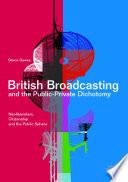
Digital Video and Audio Broadcasting Technology
A Practical Engineering Guide
This essential text for any technician in broadcasting deals with all the most important digital television, sound radio and multimedia standards. The book provides an in-depth look at these subjects in terms of practical experience. In addition it contains chapters on the basics of technologies such as analog television, digital modulation, COFDM or mathematical transformations between time and frequency domains. The attention in each respective field under discussion is focused on aspects of measuring techniques and of measuring practice, in each case consolidating the knowledge imparted with numerous practical examples. Since the entire field of electrical communications technology is traversed in a wide arc, those who are students in this field are not excluded either.
- ISBN 13 : 3540763589
- ISBN 10 : 9783540763581
- Judul : Digital Video and Audio Broadcasting Technology
- Sub Judul : A Practical Engineering Guide
- Pengarang : Walter Fischer,
- Kategori : Technology & Engineering
- Penerbit : Springer Science & Business Media
- Bahasa : en
- Tahun : 2008
- Halaman : 586
- Google Book : https://play.google.com/store/books/details?id=5kVUfnt1QQYC&source=gbs_api
-
Ketersediaan :
008440 Tersedia di Library of UI BBC
This essential text for any technician in broadcasting deals with all the most important digital television, sound radio and multimedia standards. The book provides an in-depth look at these subjects in terms of practical experience.









